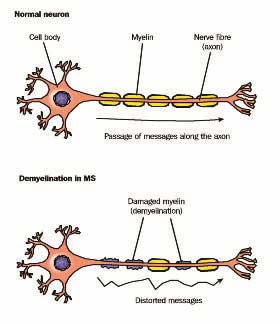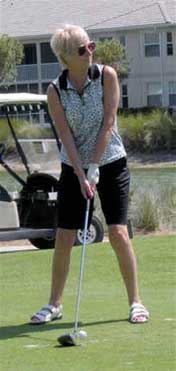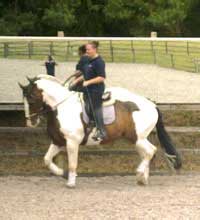

Our work with Multiple Sclerosis

Breaking new ground
We always look for the similarities, (and not the differences between diagnoses or prognoses), and were glad to discover that when we started working with those issues, the clients responded really well.
The results after working with over 25 people with MS are very encouraging. The vast majority reported a reduction in symptoms whilst on the programme, and many are experiencing profound positive changes to their function and wellbeing. Some have sustained their improvements for over 12 months now.
Research
Research has shown that in cases of relapsing and remitting MS, the sclerotic lesions (pictured) can be relatively unchanged during the remitting phase of the illness, suggesting that people can have fewer symptoms, despite still having damaged myelin around their nerves. There is also evidence that some people who haven’t experienced symptoms, have shown lesions in either the brain or nervous system. Conversely, there is also evidence suggesting that repair can occur in this area.
We believe these findings indicate that the lesions themselves are not necessarily the ‘cause’ but
may well be a symptom themselves. If this is the case, could there be other reasons why people
experience symptoms?
Extensive research has been done into the effects of ‘the stress response’. The long-term production of stress hormones (adrenaline and cortisol) has a devastating effect on the immune and endocrine systems, and through these, many other body systems. Being stuck in this response can perpetuate chronic illness and in some cases lead to worsening or new symptoms.
We teach techniques that ameliorate the stress response on a minute by minute basis to allow the body and brain to return to ’homeostasis’ – normal function. Through repeatedly using the techniques it is possible to retrain the body and brain so that we can make improvements to symptoms, function and quality of life.
To read a review of Dr. Esther Sternberg’s research into stress and disease – click here
Stress factors

These concerns are understandable, but lead to more stress in the body which naturally leads to more worry and fear – this can then create a vicious cycle.
So at the Rowan Centre we spend time looking at the neuroscience behind the stressors and teach participants techniques to help change the responses. We go to the control centre, the brain, to activate different neurological and chemical reactions that positively affect the physiological symptoms.
Over 95% of our responses are unconscious, so we teach participants how to overcome the stressors they can identify, as well as discover the unconscious stress patterns they need to address and resolve. It is an ongoing programme and takes commitment to keep on track. You will have to be ready to make real changes to the way you operate, but we will provide preparation, support and follow up so you get the benefits you deserve.
Evidence
At the Rowan Centre the first 25 people with MS have had a wide variety of diagnoses, so we have started to see what level of improvements can be achieved and sustained. So far, the difference between relapsing/remitting MS and progressive MS has not been crucial to success. The most relevant factor seems to be the willingness of the participant to fully commit to using the techniques effectively. The earlier you start, the easier it is to get good results, but even people with severe symptoms have experienced improvements to their quality of life.
Not everyone who has been through the programme has sustained the good results they initially had, and some people have struggled with ups and downs. It is early days, but we have found that the people who are the most successful and sustain their improvements, are the ones who persist with the new skills and use them when necessary.
Support

We have permission from these first people with MS to share their case notes (anonymously) so if you’d like to know more please contact us. It can also be very useful to talk to someone who has been through the programme, so if you would like to, please contact us so we can put you in touch.
Please phone Kate or Steve on 0845 900 5765
Sue’s story

After the first day of the course she noticed she had more energy that usual and was starting to walk more easily. Her confidence grew and by the end of the 3 days other symptoms were also improving.
She continued using the techniques and after a week she could walk without the cane, which was the first time for 4 years. She could stay up all day and after four weeks walked a mile and a half unaided.
Four months later she walked a whole mile along a beach for the first time in ten years and no longer experienced balance problems as she stood with the waves lapping around her feet.
“I may occasionally feel tired or my legs sometimes less good”, says Sue, “but by using the techniques I am able to limit the impact and complete tasks that before I would have had to abandon”. It is now nearly two years since she started the programme at the Rowan Centre and she is able to travel abroad, enjoy her passions for golf and helping others and has a very busy social life.
Jo’s story

After she started the programme a year ago, she was able to enjoy a bath without the usual pain, eat things that previously caused IBS repercussions and had energy that she hadn’t experienced for years
For the first time in seven years she started sleeping well and feeling refreshed. One week on Jo said,
“I was able to get up at six in the morning to go to the supermarket and noticed no MS symptoms at all”.
Seven months later she raised money for Sport Relief by doing a one mile run and has now started a
part-time job. There have been challenges along the way but whenever she has experienced worsening symptoms she had some follow up coaching and got back on track.
She is now enjoying planning for a family, and a new career with her beloved horses.
The Rowan Centre, North Hall, Beccles Rd, Wrentham, Suffolk, NR34 7NP. Tel 0845 900 5765

